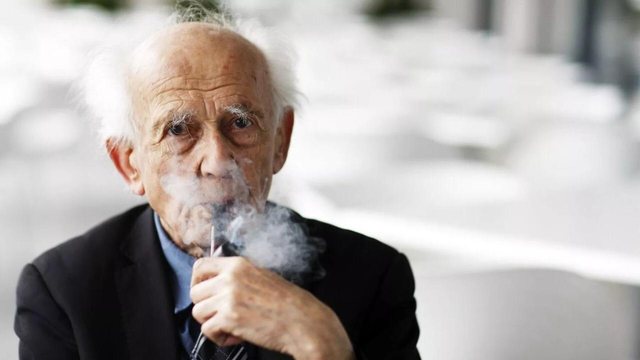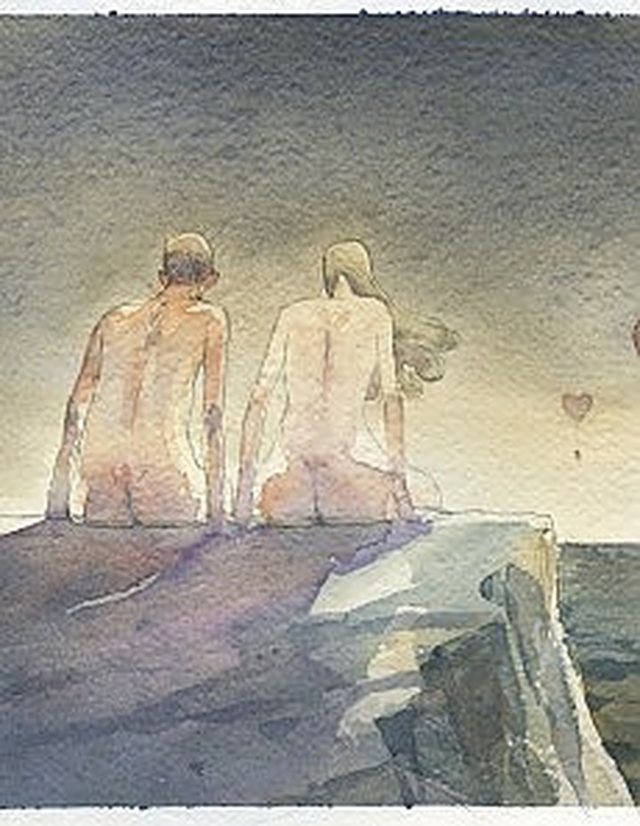
" We are no longer recognizing the joy of things that last, the fruit of our labor. " The great sociologist explains how relationships today have been replaced by "connections". He adds: " Every relationship is special: we can not learn how to love." While a connection can be broken whenever we want, like a game. "But to make offline friendships we have to try hard."
To love and stay together for life. Once upon a time, a few generations ago, not only was this possible, but it was also a social rule. Today, on the contrary, such a relationship has become something rare, a choice to be envied, as some may think, or even crazy, as some others may think. Zygmunt Bauman has returned to this issue several times (he also addresses it in his latest book Common Things, published by Laterza). His studies contain analyzes of how relationships are experienced: today we are exposed to thousands of temptations and, although fidelity is no longer the norm as it once was, it at least serves to protect feelings from their immediate loss due to consumption. His work Flowing Love, published in 2013, is based on this concept,
What motivates us to always be on the lookout for new connections?
We always need to love and be loved, to find some kind of balance within ourselves, but we are never sure we get satisfaction to the end. Flowing love is just that: a love split between the desire for emotion and the fear of the relationship.
So we are doomed to experience short relationships or to be unfaithful…
No one is "condemned". We are faced with various possibilities, from which it is up to us to choose. Some selections are easier, others contain more risk. Those that seem less troublesome to us are lighter, compared to those that require effort and sacrifice.
However, with your wife Janina, who passed away two months ago, you have experienced a long love.
Love is not a packaged and ready-to-use item. It is entrusted to our care, needs constant effort, regenerates, recreates and resurrects every day. Believe me, love rewards us this attention wonderfully. As for me (and I hope it was the same for Ioannina) I can say that the taste of our love improved over the years, like that of summer.

Today, in life, we live more connections. Are we freer or more timid?
Freedom and security are both necessary values, but they are also in conflict between them: the price we have to pay for a great security is that of a lesser freedom, while the price of a greater freedom is the lesser security . Most people seek to find balance, almost always in vain.
But, you grew old together with your wife: how did you cope with the boredom of everyday life? Has "getting old together" gone out of fashion?
Today, the prospect of aging is out of fashion, as it has been identified with diminishing choices and a lack of "new things." "New things", which have risen to the highest level of the hierarchy of values â??â??in consumer societies, are today called the secret of happiness. "Use and cast", which were immediately replaced, We no longer recognize the joy of enduring things, the fruit of our toil and scrupulous work.
So, we come to the part where we talk about the middle ground. How can we return his uniqueness to another?
In our desperate need for love the market has sniffed the opportunity for tremendous benefits. And it seduces us with the promise that we can have everything without getting tired: pleasure without work, profits without sacrifice, results without effort, recognition without any in-depth process. Love requires time and energy. But today to listen to the person we love, to take the time to help the other in difficult moments, to fulfill his desires and needs more than ours, sounds unnecessary: â??â??to fill our lack of mercy, friendship and attention to us it seems enough buying gifts in a store. But, we can buy everything but love. We can not find love in a store. Love is like a factory that works twenty-four hours a day, seven days a week.
Maybe we go from bond to bond to avoid the dangers of love, as if “quantity” would protect us from the painful exclusivity of long relationships.

Yes, it is. When what surrounds us becomes insecure, we are under the illusion that if we have too many "second choices", we will be relieved of the pain caused by the situation we are in. Going from one place to another (a very promising thing, because we have not tried it yet) seems easier and more tempting than working hard to repair the imperfections of the current apartment, to transform it from a place where we only live in a real house. Even "exclusive love" almost never lacks pain and problems - but the joy lies in the common effort to overcome them.
Can we resist this tempting world? And why?
It takes a very strong will to resist. Emmanuel Lévinas speaks of the "temptation of temptation." What we really want is the state of "being tempted," not the object that temptation promises to bestow upon us. We want that condition because it breaks the routine a bit. The moment we are tempted we seem to be free: we are looking beyond routine, but we have not yet succumbed to temptation, we have not yet reached the point of no return. The next moment, we are surrendering, freedom is extinguished and replaced by a new routine. Temptation is a trap into which we tend to fall with joy and with our free will.
But, you write: "No one can experience the same love and the same death twice." Do we only love once in a lifetime?
There are no rules. Every love, as well as every death, is special. For this reason, no one can "learn" how to love, just as no one can "learn how to die". Although many of us dream of doing it and there are and trying to learn it even by spending money.
In 1968 it was said, “We want everything and right away.” Is our desire for quick pleasures the daughter of this period?
The year 1968 may have been a starting point, but our commitment to getting instant gratification even without a relationship is a product of the market, which knew how to capitalize on how we want to live in the present.
Are "human relations" an obstacle today in this world that consumes everything?
They have been replaced by "links". Relationships take time, while "connecting" and "disconnecting" seems like a child's play. On Facebook we can find hundreds of friends just by moving our finger. But to make offline friendships we have to try hard. What we gain easily (and confuse with freedom) we lose to security.
Have you and Ioannina gone through any crises?
But how could it be otherwise? But, from the beginning we decided that staying together, although difficult, is incomparably better than the other alternative. After making this decision as a challenge to face, he manages to overcome even the biggest marital crisis. He is completely opposite to the less dangerous statement: "Let's live together and then see how it goes ...". In such a case, even a misunderstanding takes on the dimension of a catastrophe, followed by the temptation to end history, to abandon the seemingly flawed man, to seek pleasure in the other direction.
Was your love love at first sight?
Yes, nine days after our first meeting I made the marriage proposal and she accepted. But it took a long time, 62 years, for our love to grow and live long.
(1) Zygmunt Bauman (1925 - 2017) is a Polish sociologist and philosopher who, punished by the communist regime, later lived in England. Bauman is one of the world's most famous sociological theorists and has written extensively on issues of modernity, the Holocaust, post-modern consumerism, and current modernity, a concept he links to the latter's inability to manage change. his constant.
(2) Bauman in this book elaborates the concept of flowing modernity, of fragile love, where man can not have stable relationships. The author uses the adjective "liquid" in English to express the instability and fragility of modernity and human connections in it./TiranaPost.al/





